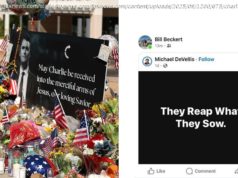The decision is considered important as the legal system grapples with the wealth of private information collected on Americans.
WASHINGTON — The Supreme Court on Friday put new restraints on law enforcement’s access to the ever-increasing amount of private information about Americans available in the digital age.
In the specific case before the court, the justices ruled that authorities generally must obtain a warrant to gain access to cell-tower records that can provide a virtual timeline and map of a person’s whereabouts.
Chief Justice John G. Roberts Jr. wrote the 5 to 4 decision, in which he was joined by the court’s liberal members. Each of the dissenting conservatives wrote separate opinions.
It was an example of what Roberts has called one of the greatest challenges for the court: applying the Constitution and the court’s precedents to technology that evolves more quickly than the law.
The justices ruled for Timothy Carpenter, who is serving a 116-year sentence for his role in armed robberies in 2010 and 2011 at RadioShack and T-Mobile stores in and around Detroit. He was accused of being the ringleader of a gang stealing smartphones.
One of the men arrested said Carpenter typically organized the robberies, supplied the guns and acted as a lookout. Authorities asked his cellphone carrier for 127 days of records that would show Carpenter’s use of his phone.
Such records indicate where a cellphone establishes connections with a specific cell tower and give a fair representation of the vicinity of the user. In Carpenter’s case, the mass of information showed his phone at 12,898 locations, including close to where the robberies occurred when they took place.
Carpenter’s attorneys said that the government’s actions violated their client’s rights under the Fourth Amendment, which protects against unreasonable searches. Authorities should have had to convince a judge that there was probable cause to get the records, they said.
The Justice Department, however, cited the Stored Communications Act, in which authorities had only to meet a lesser standard: that there were “reasonable grounds to believe” tha
But the court’s majority agreed with Carpenter’s lawyers.
“Given the unique nature of cellphone location information, the fact that the Government obtained the information from a third party does not overcome Carpenter’s claim to Fourth Amendment protection,” Roberts wrote.
The government contended that its actions fit squarely with the Supreme Court’s prevailing precedents. In the 1979 decision in Smith v. Maryland, the court ruled that requesting records that showed the numbers called from a home phone did not constitute what would be considered a “search” under the Fourth Amendment. Because the caller’s information was voluntarily transmitted to a third party — the telephone company — the caller had no reasonable expectation that the numbers called would remain private.
But the court in recent years has shown more adaptation to new technology.
In 2014, it said a warrant was needed to search a person’s cellphone.
“Modern cellphones are not just another technological convenience,” Roberts wrote for the court. “They could just as easily be called cameras, video players, Rolodexes, calendars, tape recorders, libraries, diaries, albums, televisions, maps or newspapers.”
Two years earlier, the court ruled against law enforcement after authorities attached a GPS device to a suspect’s car and tracked his movements for 28 days.
They divided on the reasoning but expressed concern about the amount of information available to the government.
The case at issue is Carpenter v. U. S.t the records sought “are relevant and material to an ongoing criminal investigation.”
Send questions/comments to the editors.






